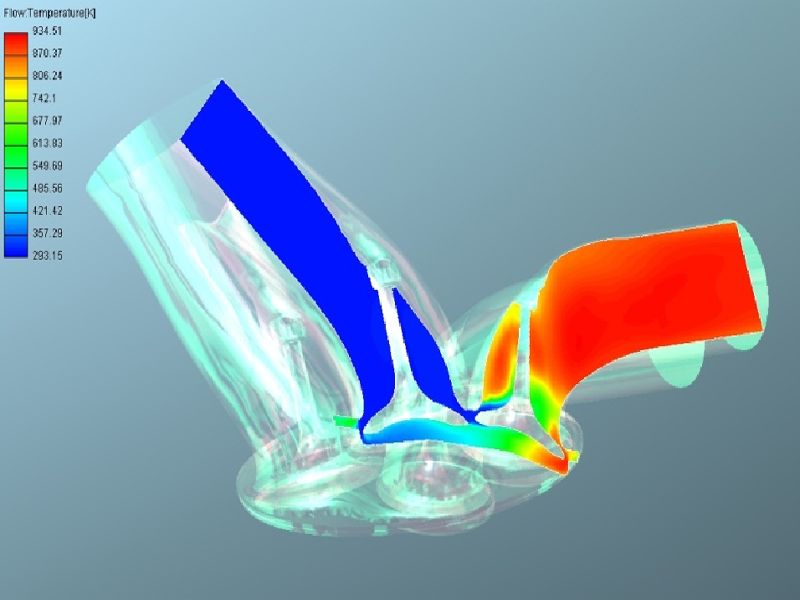
Computational Fluid Dynamics
The role of Computational Fluid Dynamics (CFD) is today well recognised as a valuable tool for the analysis of the thermo-fluidynamic phenomena underlying the energy conversion process in various kind of systems. Numerical simulation allows performing virtual tests about different geometrical configurations or governing parameters within relatively short times and at negligible costs in comparison with the corresponding experimental characterization.
CFD techniques in Istituto Motori are daily applied for studies concerning both internal combustion engines and combustors for stationary power plants, where either fossil or renewable fuels are employed. Multidimensional models are assessed as proprietary codes or through proper formulation within commercial software environments, for the characterisation of turbulent reactive multi-phase flows. The synergy between CFD and advanced experimental analyses is pursued in a continuous way, with the twofold scope of models validation and gain of hints for further experimental analysis.
The technological transfer of the knowledge acquired from CFD studies to manufacturers is straightforward, due to the worldwide spread change from a test-first culture to an analysis-led design process. In this perspective, the use of rigorous techniques of decision-making, such as optimization methods coupled with modern tools of numerical simulation is also being conducted to reduce costs, improve performance and reliability, and shorten the time-to-market of energy conversion systems and components for the highest energetic and environmental performance.
The main topics object of CFD studies are:
- simulation of the dynamics of liquid sprays in gaseous atmospheres in the presence of possible impact on heated walls;
- application and optimization of CFD techniques with detailed chemical kinetics to compression ignition engines;
- development of simulation models and optimization of the energy and environmental performance of spark ignition engines (especially GDI);
- study of the behaviour of micro-gas turbines as part of integrated systems for distributed power generation;
- development of models for the thermo-chemical conversion of biomasses in waste-to-energy systems.